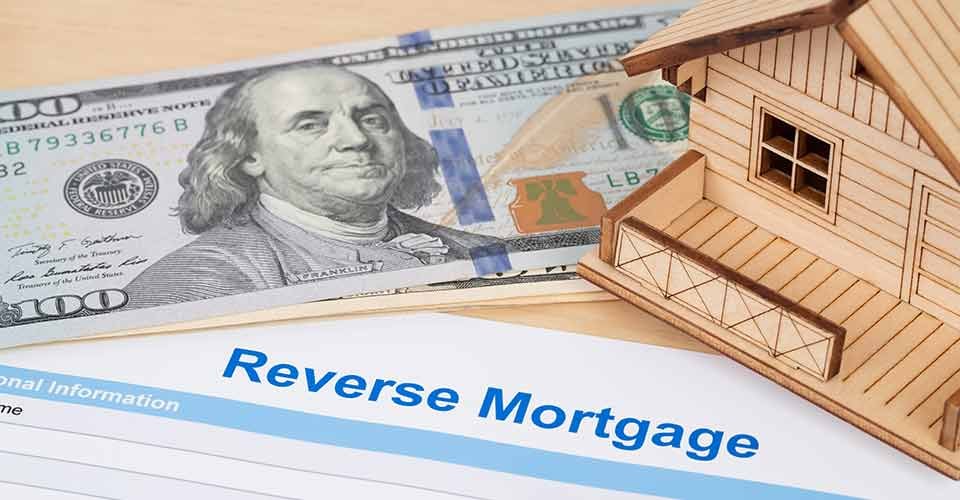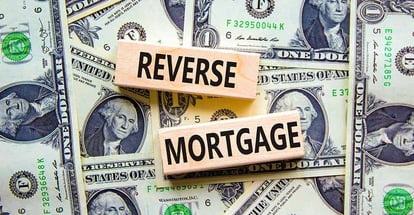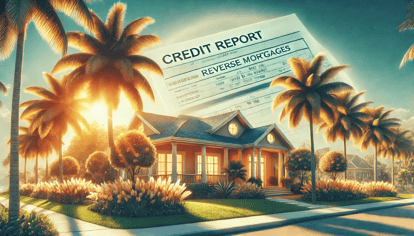Reasons Why the Rich Are Getting Reverse Mortgages
In recent years, reverse mortgages have become an increasingly popular option for affluent homeowners looking to access the equity in their homes without having to sell or move out.
A reverse mortgage is a type of loan that allows homeowners to convert a portion of their home equity into cash, which can be received in a lump sum, line of credit, or as monthly payments.
While reverse mortgages were once considered a last resort for retirees with limited income and few other assets, they have evolved into a viable financial planning tool for many affluent individuals and couples.
In fact, according to a recent study by the National Reverse Mortgage Lenders Association, more than half of all reverse mortgage borrowers have annual incomes of $100,000 or more.
But why are affluent homeowners turning to reverse mortgages in increasing numbers? Here are the top reasons why the affluent want a reverse mortgage:
Tax-Free Distribution
One of the most attractive features of a reverse mortgage for affluent homeowners is the ability to receive tax-free distributions.
Unlike distributions received from traditional retirement accounts, such as IRAs, Sep-IRAs, or 401Ks, reverse mortgage distributions are not subject to ordinary income tax.
This can be a game-changer for affluent homeowners who are looking to maximize their retirement income and preserve their assets for the future.
By utilizing a reverse mortgage to access their home equity, homeowners can avoid the tax implications of tapping into their traditional retirement accounts.
The ability to receive tax-free distributions from a reverse mortgage can be particularly beneficial for those who have already accumulated significant retirement savings.
As retirees approach mandatory distribution age, they may be faced with the prospect of having to withdraw a significant portion of their retirement savings each year, which can result in a substantial tax bill.
However, by utilizing a reverse mortgage to supplement their retirement income, retirees can defer taking distributions from their retirement accounts and allow them to continue to grow tax-free.
This can be especially advantageous for those who anticipate that their income tax rate will increase in the future.
In addition to the tax benefits, reverse mortgages also offer homeowners the flexibility to choose how they receive their distributions.
Whether it's a lump sum, line of credit, or monthly payments, homeowners can tailor their reverse mortgage to meet their specific financial needs.
Risk Management Against Equity Market Swings
One strategy for managing investment risk is to use a reverse mortgage to access home equity and take advantage of market swings without having to sell off assets.
The reverse mortgage credit line is a powerful tool that can be used to cover unexpected expenses or supplement retirement income. However, it can also be used strategically to buy low and sell high in the equity markets.
For example, if an affluent homeowner has a favorite stock that is experiencing a downturn, they may be hesitant to sell off their shares and lock in losses.
Instead, they can use the reverse mortgage credit line to buy more shares of the stock while it is undervalued, with the intention of selling them later when the price rebounds.
Using a reverse mortgage credit line to cover lower distributions or to make strategic investments in the equity markets can be a way for affluent homeowners to manage investment risk and take advantage of market swings.
By leveraging the equity in their homes, homeowners can avoid having to sell off other assets to cover expenses or make investments.
Downsizing the Household
The idea of a smaller, easier-to-maintain home, with fewer rooms to clean and less yard work to do, can be very appealing.
But for affluent homeowners, downsizing can also present an opportunity to leverage home equity and improve their financial position.
Consider this scenario - you own a $900,000 home with a $200,000 mortgage. If you sell the home and pay off the mortgage and closing costs, you'll be left with around $650,000 in cash.
You could use that money to buy a smaller home outright, but what if you could leverage that equity to improve your financial position even further?
One option is to use a reverse mortgage to finance the purchase of the smaller home.
By taking out a $200,000 reverse mortgage with a growing line of credit, you can improve your liquidity and increase your investment-class assets by $200,000, all while still having no mortgage payments.
The benefits of this approach are twofold. First, you can take advantage of the liquidity provided by the reverse mortgage to make other investments or cover unexpected expenses.
Second, you can preserve your cash reserves and keep your assets working for you, instead of tying them up in a single illiquid asset.

Optimize Social Security Benefits
However, many retirees are faced with a difficult decision - should they start collecting Social Security benefits early and receive lower monthly payments, or delay their benefits and receive a higher monthly payout?
One strategy that can help affluent retirees optimize their Social Security benefits is to use a reverse mortgage to bridge the gap between retirement and the start of Social Security benefits.
With a reverse mortgage, retirees can access the equity in their home to provide a source of income until they are ready to start collecting Social Security benefits.
By using a reverse mortgage in this way, retirees can delay the start of their Social Security benefits and take advantage of the maximum payout formula.
The longer you delay taking Social Security benefits, the higher your monthly payments will be, up to a certain point.
By using a reverse mortgage to provide income during the delay period, retirees can maximize their Social Security benefits and enjoy a more comfortable retirement.
By using the equity in their home to provide income during the delay period, retirees can enjoy a higher monthly Social Security benefit and a more comfortable retirement overall.
Start a Legacy While Alive
For many affluent seniors, leaving a legacy is an important part of their estate planning goals.
Whether it's supporting a favorite charity, funding a grandchild's education, or leaving a financial legacy for future generations, creating a lasting impact can be a fulfilling and rewarding experience.
One way to achieve these goals is through the use of a reverse mortgage. With a reverse mortgage, seniors can access the equity in their home to provide a source of income or liquidity to fund their legacy dreams.
This can be particularly attractive for seniors who have a significant amount of equity tied up in their home but want to enjoy the benefits of that equity while they are still alive.
One popular use of a reverse mortgage for legacy planning is to make charitable donations. By using a reverse mortgage to provide liquidity, seniors can make a sizable donation to their favorite charity while they are still alive and see the impact of their gift firsthand.
This can be a meaningful and rewarding way to support a cause that is important to them, while also reducing their income tax liability.
Another way to use a reverse mortgage for legacy planning is to fund a grandchild's education. With college costs rising every year, many grandparents are looking for ways to help their grandchildren pay for school.
By using a reverse mortgage to provide liquidity, seniors can set aside funds for their grandchild's education and ensure that they have the financial resources they need to succeed.
By accessing the equity in their home, seniors can create a source of income or liquidity that can be used to fund their heirs' dreams or provide for their financial needs.
This can be particularly important for seniors who have multiple heirs and want to avoid acrimony and conflict among siblings and heirs at liquidation.
Asset Protection
One of the key benefits of a reverse mortgage is that it allows homeowners to access the equity in their homes without having to sell or liquidate other assets.
This can be particularly valuable for homeowners who have a significant amount of equity tied up in their homes but want to leave other assets untouched.
For example, let's say you are a homeowner with a $2 million home and $1 million in stocks and bonds. You want to leave your stocks and bonds untouched for your heirs, but you also want to enjoy the benefits of your home equity while you are still alive.
By taking out a reverse mortgage, you can access a portion of your home equity without having to sell your stocks and bonds. This can help you preserve your assets for future generations while still providing you with a source of income or liquidity.
In addition to protecting assets, a reverse mortgage can also provide other benefits for affluent homeowners.
For example, it can be used to pay off existing mortgages or other debts, reducing monthly expenses and freeing up cash flow. It can also be used to finance home improvements or other investments that can increase the value of the home and the overall estate.
Another benefit of a reverse mortgage is that it is a non-recourse loan, which means that the borrower (or their estate) will never owe more than the value of the home.
This can provide peace of mind for homeowners who are concerned about the potential risks associated with other types of loans or investments.
Investment Opportunities
Whether it's investing in a new business venture, purchasing stocks or bonds, or investing in real estate, the possibilities are endless.
However, many of these opportunities require a significant amount of capital, and liquidating assets to fund these investments can have significant tax consequences.
This is where a reverse mortgage can be a useful tool for investment-minded individuals. By accessing the equity in their homes, homeowners can free up cash to invest in these opportunities without having to sell or liquidate other assets.
Additionally, because reverse mortgage distributions are not considered taxable income, homeowners can avoid the tax consequences of selling other assets to fund their investments.
One popular investment opportunity for homeowners is real estate. With a reverse mortgage, homeowners can use their home equity to purchase an investment property or even a second home. This allows them to diversify their investment portfolio and potentially earn rental income.
Home renovations are another area where affluent homeowners may consider using a reverse mortgage. Rather than dipping into their savings or selling other assets to fund renovations, homeowners can use their home equity to pay for these upgrades.
This can be particularly useful for those who plan to age in place and want to make their homes more accessible and comfortable for their golden years.
Finally, travel is a popular expense for affluent homeowners. Whether it's a dream vacation or an extended stay in a favorite destination, the cost of travel can add up quickly.
With a reverse mortgage, homeowners can use their home equity to fund their travels without having to sell other assets or dip into their savings. This can allow them to travel more frequently or upgrade their travel experiences.
Supplement Retirement Income
For affluent homeowners, a reverse mortgage can provide a significant source of additional income. This can be especially useful for retirees who have substantial assets but need additional income to maintain their lifestyle.
Unlike traditional mortgages or withdrawals from retirement accounts, the cash received from a reverse mortgage is not subject to income taxes.
This means that borrowers can use the cash to supplement their retirement income without worrying about increasing their tax liability.
Another advantage of using a reverse mortgage to supplement retirement income is that it does not require borrowers to sell or liquidate other assets.
This means that homeowners can keep their investments, real estate, and other assets intact, allowing them to pass on a larger estate to their heirs.
Tax Planning
One strategy that is gaining popularity is the use of a reverse mortgage to defer taxable gains on other investments and assets.
By tapping into the equity in their homes through a reverse mortgage, homeowners can avoid having to sell appreciated assets and triggering a capital gains tax.
This strategy can be particularly useful for homeowners who have significant investments in stocks or real estate that have appreciated over time.
Rather than selling these assets and incurring a tax liability, homeowners can take out a reverse mortgage to access the equity in their homes while deferring the taxable gains on other investments.
In addition to deferring taxable gains, a reverse mortgage can also provide tax-free income to supplement retirement income.
This is because the proceeds from a reverse mortgage are not considered taxable income, allowing homeowners to maintain their standard of living without having to tap into other assets that may be subject to income taxes.
Furthermore, a reverse mortgage can be used to pay off other debts or taxes, which can help homeowners avoid tax liens or other financial penalties.
By using the equity in their homes to pay off these debts, homeowners can avoid having to sell other assets or liquidate investments to cover the costs.
A reverse mortgage can be a valuable tax planning tool for affluent homeowners looking to defer taxable gains on other investments, supplement retirement income, or pay off other debts or taxes.
With proper planning and guidance from a financial professional, homeowners can use a reverse mortgage to achieve their financial goals and maintain their desired standard of living.
With over 50 years of mortgage industry experience, we are here to help you achieve the American dream of owning a home. We strive to provide the best education before, during, and after you buy a home. Our advice is based on experience with Phil Ganz and Team closing over One billion dollars and helping countless families.

About Author - Phil Ganz
Phil Ganz has over 20+ years of experience in the residential financing space. With over a billion dollars of funded loans, Phil helps homebuyers configure the perfect mortgage plan. Whether it's your first home, a complex multiple-property purchase, or anything in between, Phil has the experience to help you achieve your goals.


 By
By  Edited by
Edited by 






